Doctor of Philosophy (PhD)
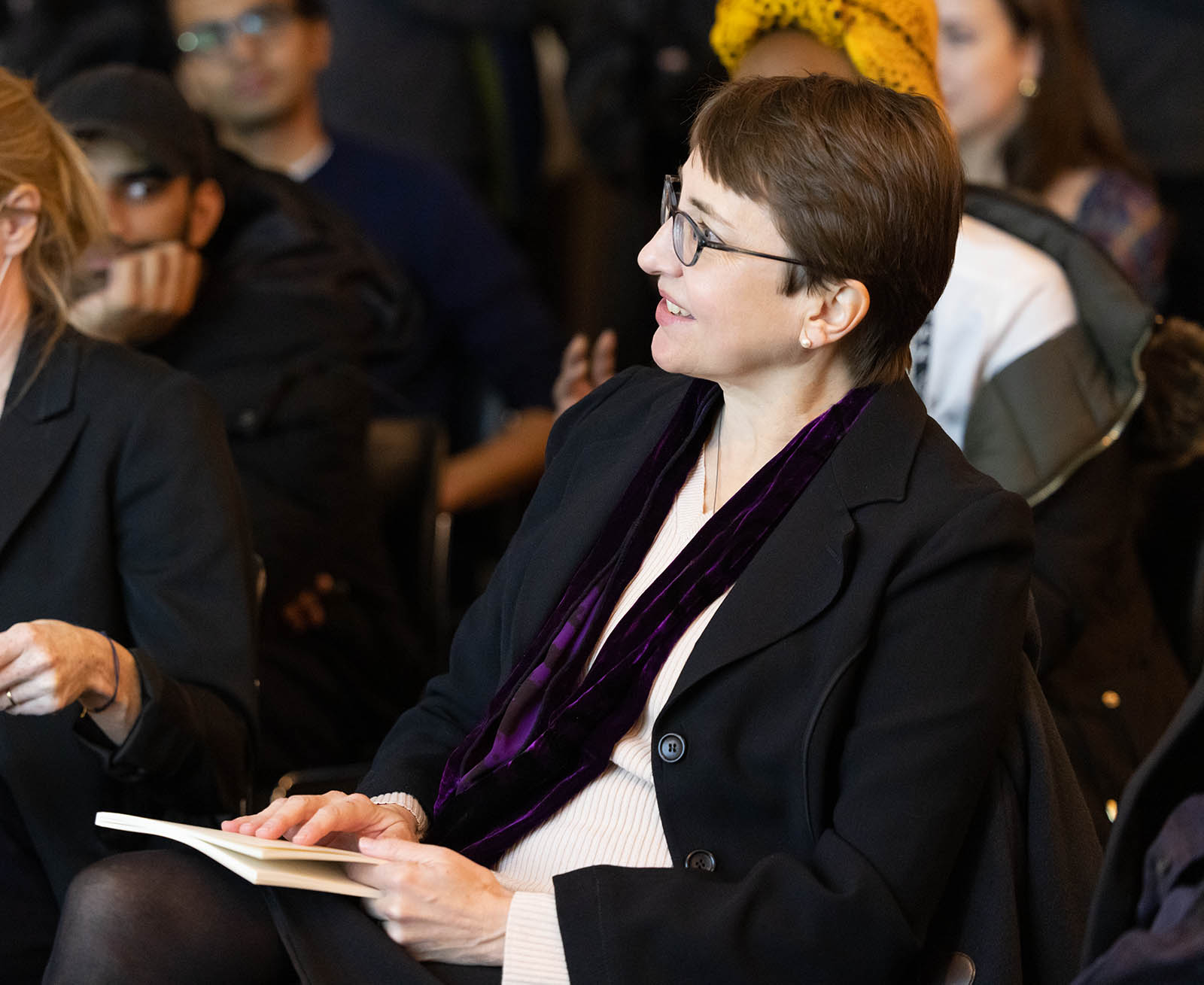
Students may study for a PhD degree in Architecture, Landscape Architecture, and Urban Planning. An additional track in Architectural Technology is also available. This degree is administered jointly by the Harvard Graduate School of Design and the Harvard Kenneth C. Griffin Graduate School of Arts and Sciences. Therefore, students benefit from a dual affiliation with both schools.
The program is mainly geared towards individuals who wish to enter academic teaching and research careers. Students are afforded a high degree of flexibility in their studies, however areas of work are broadly organized into the following areas: the Theory and History of Architecture, Architectural Technology, the Theory and History of Landscape Architecture, and the Evolution of Cities and Regions.
- Theory and History of Architecture:
Students interested in this area typically study buildings, architectural texts, technologies, and their political, social, and cultural contexts through the early modern, modern, and contemporary eras.
- Architectural Technology:
Doctoral research in architectural technology at the GSD aims to advance current knowledge in green building, for example, and will typically involve issues related to engineering, computation, and digital simulations.
- Theory and History of Landscape Architecture :
Students whose research focuses on the theory and history of landscape architecture typically investigate the ways in which the natural environment has been thought of, represented, and transformed, from the early modern to the contemporary period.
- Evolution of Cities and Regions:
Students may be interested in the subject of cities from a formal standpoint and/or develop an additional emphasis on various social, economic, technological, infrastructural, and ecological dimensions of urban life.
For biographies of current students and more information about their research interests, click here .
After graduation, PhD program alumni typically teach in design schools, or in history or history of art and architecture departments, landscape architecture and environmental studies departments, and urban studies and/or urban planning departments. Some alumni also work in the science, technology, and society domain on governmental and policy issues of particular relevance to their research.

Program Director and Administrator
Antoine Picon , G. Ware Travelstead Professor of the History of Architecture and Technology at the GSD is the current director of the program.
Margaret Moore de Chicojay is the PhD program administrator and key point of contact for incoming and current students. Contact: [email protected]
- Ph.D. in Design Admissions
- Faculty and Staff
- Curriculum and Courses
- Degree Plan
- Graduate Committee and Requirements
- Graduate School Procedures
- Research and Engagement
- Research Areas
- Ph.D. Students
- PhD Student Handbook
- PhD Student Association (PhDSA)
- Current Students
- Former students
- News and Events
- Ph.D. in Design Handbook
- Financial Resources
- Travel Scholarship
- Give to PhD in Design

Ph.D. in Design
"Education is the most powerful weapon which you can use to change the world." - Nelson Mandela
The College of Design at North Carolina State University initiated the Ph.D. in Design Program in 1999. Today the program includes more than forty students from all over the world pursuing research focusing on the questions that transcend and unite the design disciplines.
The mission of the Ph.D. in Design is to advance knowledge in design through research and scholarship. This mission is built on the recognition of fertile common ground among the design disciplines and on the need for specificity and depth within them.
The Ph.D. program, therefore, values a broad range of research interests that aim to improve the human condition.
The Ph.D. in Design at North Carolina State University is outstanding. By all metrics, the program competes favorably with other North American Ph.D. programs. The College of Design has carved out a powerful and highly respected research arena (design), and the Ph.D. program is built around the strengths of the College and the faculty. 2013 External Review Team
Quick Stats

featured news

November 25, 2024
Doctoral Students Showcase Work through Design Probes: Research Strands
On November 21, the College of Design’s doctoral programs brought together practitioners from the Doctor of Design and PhD in Design programs to showcase their outstanding research in a poster session and review titled “Design Probes: Research Strands.” Students bridge academia and practice across diverse design fields, and the event showcased the collaborative ecosystem that spans the college’s four departments and fosters a vibrant environment for interdisciplinary perspectives.

November 12, 2024
Cultivating Design Solutions with Green Heffa Farms
In the spring of 2024, PhD student and instructor Erin White brought students from his D101 Design Thinking course to solve multiple challenges faced at Green Heffa Farms. The students, many of whom are not design majors, addressed challenges such as storage issues, workflow efficiency and social media strategy.

August 26, 2024
The Scope of Our Research: Winners of the 2024 Envisioning Research Contest
The 2024 Envisioning Research contest captures the spectacular landscape of research being conducted at NC State.
We use technologies, such as cookies, to customize content and advertising, to provide social media features, and to analyze traffic to the site. By using or registering on any portion of this site, you agree to our privacy and cookie statement.
- PhD in Design
The first PhD in design program in the US, Institute of Design’s PhD is a top-rated graduate program for those seeking to teach or conduct fundamental research in the field. Our PhD alumni have gone on to lead noted design programs at universities all over the world and lead practices at global corporations.
By pursuing rigorous research in an area that aligns with work by our PhD faculty, you’ll work directly in some of the most exciting design-focused work being done today. To learn more about research at ID and our PhD in Design, complete this form .
PhD Faculty Advisors
Weslynne ashton.
Professor of Environmental Management and Sustainability & Food Systems Action Lab Co-Director
Anijo Mathew
Dean & Professor of Entrepreneurship and Urban Technology
Assistant Professor of Data-Driven Design
Ruth Schmidt
Associate Professor of Behavioral Design
Carlos Teixeira
Charles L. Owen Professor of Systems Design and PhD Program Director
Degree Requirements
All PhD students will work closely with their advisors to plan their course of study and research. Students complete a total of 92 credit hours:
- Up to 32 credits can be transferred from a master’s program
- 12 course credits
- 48 research credits
Courses may be selected from across the university’s course offerings to complement the objectives of the student’s program.
Admitted doctoral students will be required to submit and obtain approval for a program of study. Within two years of being admitted, students take a comprehensive examination, after which, students will be considered candidates for the PhD degree.
The research component of the program grows as the student progresses. The dissertation created from this work is intended to create a substantial and original contribution to design knowledge.
Featured Courses
Phd principles & methods of design research, phd research and thesis, phd philosophical context of design research, student work, future archetypes of ev charging, exploring controlled environment agriculture, partnership with city clerk’s office aims to reform fines and fees, phd corporate partnership initiative.
Designed for professionals who want to reach the next level of design leadership, ID’s PhD Corporate Partnership provides candidates and organizations the tools and techniques needed to grow leadership and innovation within your organization.
Candidates should have a master’s degree in design (or equivalent) and/or significant experience as a professional designer.
A Global Network
Across the entire school, ID alumni make up a strong network—a uniquely skilled set of more than 2,400 people across 32+ countries who deal with difficult issues and navigate them with clarity, purpose, and discipline.
Alumni Hiighlights
Jessica meharry, phd, associate professor, columbia college chicago, id’s phds make their mark, andré nogueira, co-founder and deputy director of the design laboratory at the harvard t.h. chan school of public health, estimated costs.
Tuition and research stipends are extremely limited. Only self-funded applicants will be considered.
Spring 2025 Admission
November 1, 2024 (final admission)
Fall 2025 Admission
January 17, 2025 (priority admission) March 7, 2025 (final general admission)
Request More Info
Request more information.
Please complete the form to request more information or if you have additional questions regarding our application process or requirements.
For Learners
- Graduate School
- Master of Design
- Master of Design + MBA
- Master of Design + MPA
- Master of Design Methods
- Career Support
For Organizations
- Executive Academy
- Resource Library
- PhD Corporate Partnerships
- Hire from ID
For Everyone
- Action Labs
- Equitable Healthcare Lab
- Food Systems Lab
- Sustainable Solutions Lab
- Net Positive Behavior Lab
- More Ways to Partner
- Mission & Values
- The New Bauhaus
- ID Experience
- ID & Chicago
- Faculty & Staff
- News & Stories
- Design (Ph.D.)
This is a top-rated graduate program for those seeking to teach or conduct fundamental research in the field of human-centered design.
- Academic Programs
IIT Institute of Design's Doctor of Philosophy in Design is a top-rated graduate program for those seeking to teach or conduct fundamental research in the field of human-centered design. The first in the United States to offer a Ph.D. in design—and the only design school in the country devoted completely to graduate students—IIT Institute of Design (ID) has been instrumental in determining design’s future and demonstrating its significant role in cultures, organizations, and nations.
ID’s Ph.D. alumni have gone on to lead noted design programs at universities all over the world and practice at global corporations. By pursuing rigorous research in specialized areas, our candidates directly participate in some of today’s most exciting design-focused work.
The research component of the program grows as the student progresses. A dissertation created from this work should make a substantial and original contribution to design knowledge.
Program Overview
ID's Ph.D. in Design is a top-rated program for those seeking to teach or conduct fundamental research in the field of human-centered design. The first in the United States to offer a Ph.D. in design, today ID is the only U.S. design school devoted completely to graduate students.

Career Opportunities
IIT Institute of Design Ph.D. alumni have gone on to lead noted design programs at universities all over the world and practice at global corporations, including:
- Harvard T.H. Chan School of Public Health
- McDonald’s Corporation
- Parsons School for Design
Completion of the Ph.D. program requires six semesters (107 credit hours) in addition to an existing master's degree. Full-time residency is required for the first four semesters.
View Details
Admission Requirements
Applicants must have a graduate degree with a minimum of 32 credit hours and are required to submit three letters of recommendation, a portfolio, statement of interest, and a resume or curriculum vitae. There is no minimum work experience requirement, although two to four years of professional experience is preferred. ID considers full-time internships, volunteer work, and freelance projects as formal work experience. TOEFL or IELTS scores are required for any applicant with an undergraduate degree from an institution where the primary language of instruction is not English. A GRE or GMAT score is also required.
Learn more...
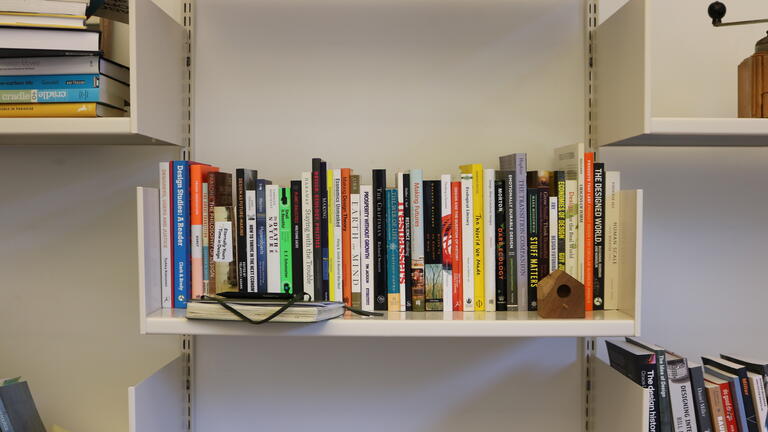
PhD in Transition Design
Fundamental change at every level of society is needed to address the issues confronting us in the 21st century. From climate change, loss of biodiversity, and depletion of natural resources, to systems of oppression, inequality, and inequity, Transition Design tackles these kinds of complex, wicked problems.
About our PhD Program
The PhD in Transition Design is for people committed to making a positive change in the world. Our unique program develops future design leaders with the capacity to envision and realize purposeful change across a range of complex systems—from food, water, materials and products, to policy, culture, economy, cities, and social movements. Transition Design acknowledges that we are living in transitional times, takes as its central premise the need for societal transition (systems-level change) to more just, equitable, and sustainable futures, and argues that design and designers have a key role to play in these transitions. This kind of design is connected to long horizons of time, pluriversal perspectives, compelling visions of desired futures, and must be based upon new knowledge and skill sets. Research in Transition Design, while grounded in systems thinking, can also be undertaken from the perspective of many areas of interest—circular economies, commoning, decoloniality, sociotechnical transitions, public policy, stakeholder participation, and futuring, to name a few.
Complex challenges must be addressed through ecologies of interventions that draw on multiple design specialisms, alongside expertise from other disciplines. In this way, Transition Design is a transdisciplinary field that unites researchers from within and beyond Design. This involves service designers, social designers, communication designers, product designers, environments designers, and design historians, working alongside ecologists, anthropologists, philosophers, economists, and political scientists.
Our PhD researchers develop their own research interests within the broad framework of Transition Design. We practice a collective, rather than competitive approach to creating a strong cohort. Program faculty and researchers alike operate as one supportive community with the shared goal of producing transformational work that matters. Throughout the program, you will maintain fluid interactions between theory and practice, through critical engagements with texts, images, media, objects, and experiences. The program is designed to encourage a supportive, critical research culture in which students, their peers, and advisory committees work closely together to shape new knowledge. As a PhD Researcher at CMU, your research will directly shape the development of this dynamic and emerging field.
The School of Design at Carnegie Mellon is a top-ranked Design School, situated at the heart of a world-leading research university, with a thriving undergraduate, graduate and doctoral student community. Upon completing the PhD, graduates are equipped to drive design-led systems-change through academic posts in leading universities and take on influential roles in nonprofit organizations, business, and government. Recent graduate destinations have included the University of Technology Sydney, New York University, Microsoft, University of Michigan, and Northeastern University.
Read more about Transition Design .
Program Structure
The program has two key stages: the first is taught (year 1); the second comprises a self-defined project developed in consultation with an advisory committee (years 2–4). Where schedules permit, our students can take electives from across Carnegie Mellon's rich and diverse curricular offering.
The core curriculum is as follows:
Advancing your understanding of how research from diverse disciplinary domains can inform new kinds of research and practice. Through this 15-week course, you will explore the intersections of theory, practice and praxis, to develop a holistic understanding of research as a reflexive theoretical and practical process. Coursework includes the design of praxis methods to shape your own research. Topics include: research of design, research for design, research by design, and design praxis.
"Teaching Design" focuses on planning, conducting, reviewing, and revising learning experiences in academic and professional contexts. Students will study learning theories and instructional design approaches, probing their value to design education. Students will investigate traditional and emergent approaches to instruction through readings and discussions situated in the realm of cognitive studies, neuroscience, learning science, instructional design, and educational pedagogy. Students will discuss challenges that are common to design, which they will use to brainstorm ways of effectively addressing obstacles that they are likely to encounter when teaching. Students will apply their discoveries to the design of learning objectives, outcomes, instructional activities, performance measures, formative assessments, and summative evaluations, to create innovative and effective teaching and learning experiences based on a context they define. The course will culminate in the design of concrete teaching plans that may take the form of syllabi, project briefs, class exercises, assessment tools, and evaluation metrics.
An “ecoliterate” mindset is the starting point for Transition Design. Indeed, to be ecoliterate is to understand the principles through which natural systems flourish and to apply these principles to society, so that we too may flourish without compromising or destroying the natural systems on which we depend. Spanning 7-weeks, this seminar class focuses on key themes of ecoliteracy to help us navigate our social, ecological, and existential crises. Topics include: place and bioregions, Goethean science, living systems and Gaia, relationality and context, radical holism, and everyday life and infrastructure
This seminar exposes students to the emergent issues in the research and practice of Design through weekly discussions with individual faculty members. Faculty primarily resident to the School of Design present their research and interests to students in 50 minute sessions; two faculty presenting one day each week. The course aims to provide masters students (and some PhD students) first-hand exposure to faculty, their research, and interests. It's also a nice way for faculty to begin meeting grad students.
Driving design-led, systems-level change towards socially and ecologically sustainable, convivial and equitable place-based lifestyles. Through this 15-week course, you will explore multilevel problems to establish mutually beneficial relationships between people, the natural environment and the designed world; repositioning designers as agents of sustainable change. Topics include: living systems & complex problems, mindsets & postures, theories of change, visions, and transition designing.
Introducing future-focused design practices with practical training in futuring and foresight methods. Through this 15-week course, you will be introduced to a broad array of future-focused design practices, coupled with practical training in futuring and foresight techniques and methods. Coursework includes the development of a "Time Machine"—an immersive, future-focussed scenario for storytelling and research activation. Topics include: world modeling, futuring & foresight, emerging design practices, criticality & speculation, design pedagogy, and sustainable futures.
Defining a 3-year research project with your advisory committee, geared toward activating sustainable change. Through this 7-week course, you will frame new research contexts, define questions, plan methodological approaches, design open research structures that adapt and change, and speculate upon research outcomes and their impacts. Coursework includes writing a PhD proposal. Topics include: framing research problems, building an argument, planning your project, keeping research open, and writing a research proposal.
Developing a 2-year period of deep, reflective and self-directed research. Across this sequence of courses—spanning 4 semesters—you work closely with your advisory committee to build upon your research proposal and literature review. During this phase, you will deepen your literature review, undertake field research, develop your practice and begin pulling together your research into a coherent body of work.
Deepening your connection with the craft of writing via a cross-section of academic, journalistic and creative styles. Through this 15-week course this practical hands-on course helps you develop your style, structure and confidence in design writing. Writing is framed as a creative process where ideas are explored, discovered and expressed. Coursework includes planning a literature review. Topics include: conference papers & journal articles, design criticism, podcasts & digital publishing, and transformational design curricula.
Creating the critical space for divergent research themes to coalesce into a clear and conclusive body of research. You will assemble your dissertation in advance of the defense in May of the final semester. Dissertations can be entirely written (60–80K words), or a body of written and practical work (40–60K words, by negotiation). Your final body of work must demonstrate an original contribution to knowledge which expands understanding of transition design.
Click here to view our PhD in Transition Design Planner, illustrating how these courses map across the 4 years of the program.
Current Researchers & Faculty
Phd researchers.

Tricia Douglas

Kyla Fullenwider
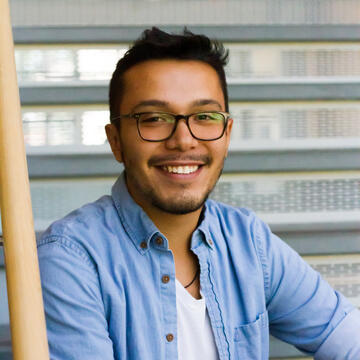
Luis Garcia
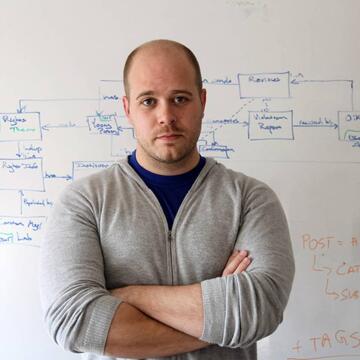
Joshua Harvey

Bryna Lipper

William Martin

Saurin Nanavanti

Alexander Polzin

Alisha Saxena
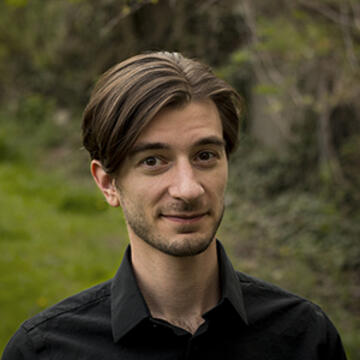
Russell Singer

Andrew Twigg
Associate Teaching Professor, PhD in Transition Design
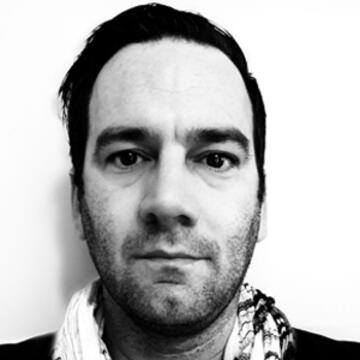
Matthew Wizinsky
Faculty advisors.
Toward the end of the first year, you are supported in assembling a 2-4 member advisory committee. This mentoring group comprises diverse expertise from faculty from the School of Design , from other schools across CMU, and advisors external to CMU where appropriate.
Requirements & Costs
Entry requirements.
Qualifications Applicants should meet the following requirements:
- A Bachelor's degree from an accredited institution with a strong record of academic achievement.
- A Master's degree from an accredited institution with a strong record of academic achievement. In some circumstances, we will consider applicants without a Master's degree, where there is evidence of equivalent community-engagement, leadership, research, writing, or other related experience.
Language Requirements All applicants whose native language is not English are required to submit a TOEFL (Test of English as a Foreign Language), the IELTS (International English Language Testing System), or the online Duolingo English Test score. All applicants must submit their highest test score by the application deadline.
- Our minimum TOEFL total score is 102, with minimum subscores of 25. In addition to single test date TOEFL iBT scores, the School of Design also accepts MyBest scores for TOEFL iBT.
- Our minimum IELTS score is 7.5
- Our minimum Duolingo score is 128 total. Subscore minimums: Literacy: 125, Conversation: 120, Comprehension: 135, Production: 105
Scores below these minimums will not be considered for admission.
Professional track candidates find their own sources of funding. This is for people who wish to continue their employment whilst also undertaking PhD research, and keep the flexibility to study in a low-residency mode once the first year of coursework is complete.
Applicants who are accepted into the program are required to pay the following fees, totalling approximately $69,975 over 4-years:
- Year 1: $45,700 (2024-2025)
- Year 2: $6,490 (2025-2026)
- Year 3: $6,625 (2026-2027)
- Year 4: $6,760 (2027-2028)
University fees (annual estimate)
- Activity Fee: $238
- Transportation Fee: $256
- Technology Fee: $460
Note : Candidates are responsible for their own individual health insurance at approximately $3,000 per year.
Application
Information on how to apply and what you'll need to include with your application can be found HERE .
Further Information
Please feel free to email us with any questions. You can also check out our FAQs page . As this is a relatively new program, insufficient data exists to provide helpful transparency statistics. This will be shared as it becomes available.

IMAGES
VIDEO